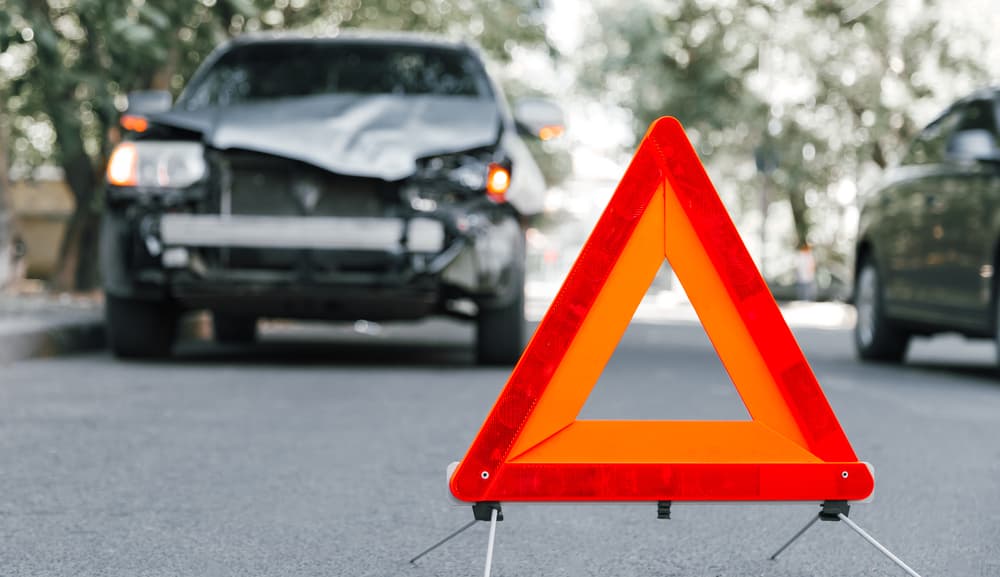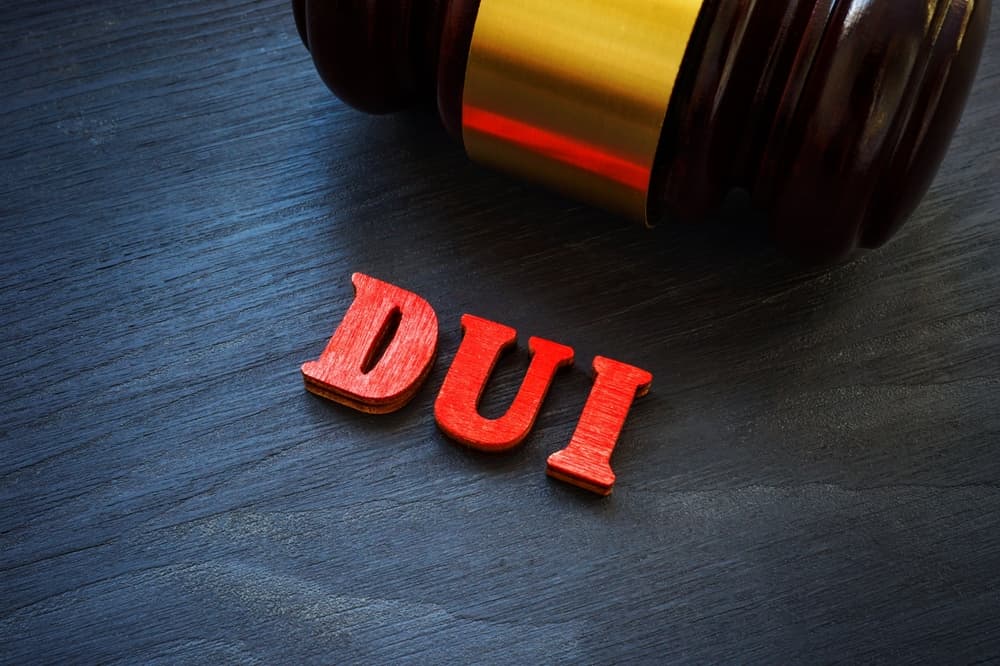
Leaving the Scene of an Accident in New Jersey
Imagine the following scenario. You’ve just had a long day at the office. All you’re thinking about is what to make for dinner. Then, suddenly, you realize you’ve hit another car.
Your heart is racing, and you feel panicked. This is not the time to flee. Whenever you’re involved in an auto wreck, you have a legal obligation to report the accident to the police. It’s the law in the Garden State. Reach out immediately to a DUI/DWI lawyer in New Jersey if you are involved in a car accident.
Schedule a Free Initial Consultation Today!
Discuss Your Car Accident with a DUI/DWI Attorney or Criminal Defense Lawyer

If you’re involved in a car accident, you need to discuss your rights with a DUI/DWI attorney or criminal defense lawyer. Complying with the law and working with an attorney are always smart moves.
Understanding Your Legal Duty
According to New Jersey law, anyone involved in an automobile collision MUST stop and disclose their identities and provide relevant information related to insurance coverage.
It’s important to note that this provision is not discretionary. The sole purpose of the law is to protect everyone concerned at an accident scene.
Below are some key takeaways:
- Sharing information: Each driver must share personal details, including their name and address, as well as those of their insurers
- Aiding one another: If someone gets hurt during the accident, it’s important to provide the required help – dialing 911, performing basic first aid, or staying on the scene until emergency responders arrive
It may be tempting to leave an accident scene, especially in cases where there appears to be no apparent or life-threatening damages or mechanical problems or issues. However, some car damages may remain hidden until after an accident. Again, remaining at the scene, as the law requires, guarantees your protection and the protection of others.
The Penalties for Leaving the Scene of an Accident
The penalties for hit-and-run in New Jersey are harsh and become increasingly severe when there is bodily harm or death. Let’s break down the numbers:
Property Damage Only: Still Not a Light Offense
Even if no one got hurt during the crash, except for property, such as a bumper or headlights, you’re obligated to share information and stay on the crash scene. If you leave the scene, you may be looking at the following penalties:
- Imprisonment: Maximum 30 days behind bars
- Driver’s License Suspension: Driving privileges revoked for not more than 30 days
- Fines: An initial fine ranging between $200 and $400, which can double after subsequent offenses
- Insurance Surcharge: A minimum of $450 may be added onto premiums (In fact, your insurance can increase by as much as 84 percent)
- Points: Two points added to your driving record if there aren’t any injuries and only damages to property
Hit-and-Run with Injuries or Fatalities: Life-Changing Consequences
Once a person sustains injuries or dies after a hit-and-run, things can take a life-changing turn:
- Time Behind Bars: You can spend up to five years inside a state prison
- Driving Ban: A total restriction against holding any license type – valid for one calendar year following the conviction date
- Monetary Penalties: If a life is lost due to driver negligence, fines can reach as high as $15,000
- Insurance Premiums Increase More Than Expected: Your premium can increase by as much as six hundred dollars above the minimum – all meant to teach drivers not to run away from their legal responsibility. As noted, on average, New Jersey insurance rates increase by 84 percent after a hit-and-run conviction — or escalate to thousands of dollars each year
- Points: Eight points applied against your driving license
- Job Outlook: A hit-and-run record can bar you from applying for many jobs, especially driver and trust-related opportunities
- Emotional Impact: You can experience psychological consequences to living with the guilt of abandoning someone in need
- Civil Lawsuits: Fleeing an accident is essentially an admission of guilt, which only raises the likelihood that you’ll be sued for damages in a civil court
The Psychology Behind Why People Leave the Scene:
It’s easy to condemn individuals who don’t stick around after they cause an accident, but it’s not that simple. Some common motives for fleeing include:
- Panic and Shock: When stress triggers the fight-or-flight response, it leads to a bad decision
- Fear of Consequences: Ironically, by fearing that you’ll get into trouble if you don’t leave an accident scene, you actually get into worse trouble by fleeing
- Impairment: Some might flee if they are impaired and are afraid of getting arrested for DWI/DUI
- Outstanding Warrants or Legal Issues: Others may take off if they have unrelated legal problems
Realizing these motivations doesn’t justify the conduct; it underscores the need to stay calm and think clearly when emotions run high. That’s why you should talk to a lawyer – either a DUI/DWI lawyer or a criminal defense attorney who handles these types of cases.
What Should You Do If Involved In An Accident? (Step-by-step guide)

- Stop Immediately – Pull over as close as safely possible to where everything happened.
- Check for Injuries – Look yourself over and check others involved if you can, and call 911 or the police.
- Again – Remain Calm – Take deep breaths and stay composed.
- Exchange Information – Get names, contacts, insurance numbers and license plate numbers from everyone involved in the crash.
- Document the Accident Scene – If it’s safe, take pictures showing the damage along with photos that show the intersections/streets/signs at the accident site.
- Notify Your Insurance Provider – Let your insurance company know what happened as soon as possible.
- Seek Medical Attention – Even if you feel fine now, some injuries appear later. It’s better to be safe than sorry.
- Seek Help from an Attorney – Reach out to an attorney who handles accident cases such as yours if you were impaired or were at fault for the mishap.
The Bottom Line: Always Stay on the Scene – Never Leave a Crash Site
No matter how afraid or unsure you are about the aftermath of an accident, fleeing is never an option. Leaving may seem convenient at first, but legal, financial, and personal consequences can follow that far outweigh any short-term benefits.
By staying at the scene, you:
- Fulfill your moral and legal obligations
- Potentially save lives through taking prompt medical action
- Protect yourself from serious criminal charges
- Preserve future opportunities while keeping peace with yourself
Remember this – a moment’s panic can lead to a lifetime full of regrets.
Therefore, always make the right choices, even when they seem difficult, because, in the long run, they ultimately pay off.
Contact a DUI/DWI Lawyer or Criminal Defense Lawyer Today
If you were involved in a hit-and-run accident, you should contact a criminal defense lawyer or DUI/DWI attorney without delay. Taking responsibility for your actions is the first step in having peace of mind. Contact a criminal defense attorney right away.
Lindsay Bernstein
Latest Posts
What Happens if You Get Caught for Shoplifting?
If someone accuses you of shoplifting, you may face serious legal consequences. The first and most obvious risk you face is the immediate threat to your...
Common Offenses That Lead to a Suspended License in New York
We frequently overlook or undervalue our ability to drive, regarding it as a right rather than a privilege. Though most of us know that there are fines and...
